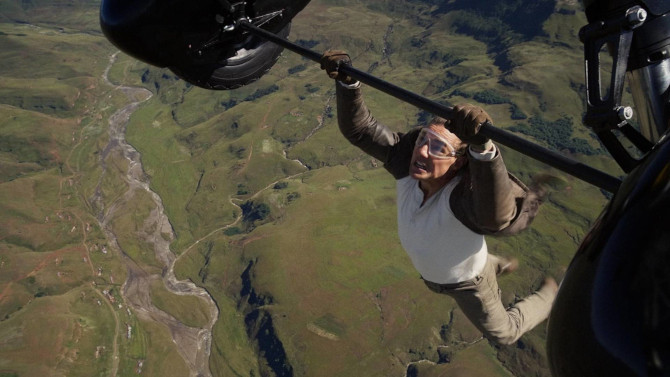
An Impossible Mission
How do you wrap up a franchise like Mission: Impossible? That is, if this even is the final installment... as they’ve made it sound (while at the same time, stars not named ‘Tom Cruise’ pipe up and suggest that might not be so). It has been twenty-nine years, with different writers and visionary directors – from twisty Brian De Palma and the action hair stylings of John Woo, to the lens flares of J.J. Abrams and animation expert Brad Bird, it was only about ten years ago that the franchise decided to opt for The Usual Suspects scribe Christopher McQuarrie for the final four. To return to that opening question once more, you could end with a Sopranos’ style cliffhanger, simply make another entertaining movie like the many before – like Everybody Loves Raymond did it with its final episode, or try to tie everything up in a neat little bow by bringing everything together as the Daniel Craig era did with James Bond. Well, it is definitely more along the lines of the latter example, with some distinct differences.
-
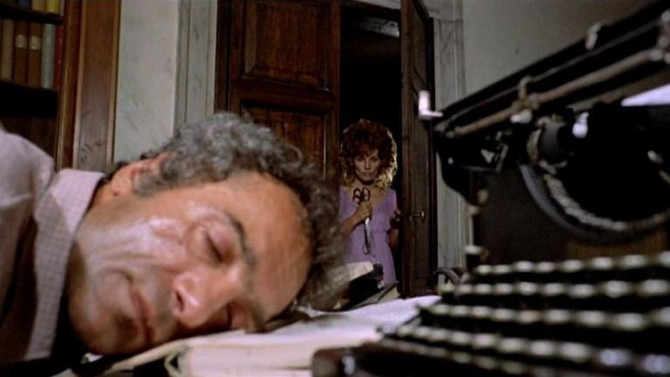
Vice Grips
Your Vice Is a Locked Room and Only I Have the KeyMarch 11, 2018Ah. . . Edgar Allan Poe. The original master of suspense (and macabre), with his maniacal revenge plots, twisted love stories and gothic settings, has arguably done more for horror films than any other writer (though some may argue that H.P. Lovecraft excels). This is evident in nearly every frame of the 1972 giallo Your Vice is a Locked Door and Only I Have the Key (the title alone is a classic, it was also released under other titles as well, including Gently Before She Dies, Eye of the Black Cat, and Excite Me!). Loosely based upon Poe’s “The Black Cat”, director Sergio Martino infuses a style reminiscent of Henri-Georges Clouzot’s horror classic Les Diaboliques, making for a unique narrative. Set in an ancient villa, its decay and rot echoing the crumbling marriage inside (this setting will bring to mind several Poe tales, most notably, “The Fall of the House of Usher”), Oliviero (Luigi Pistilli) is a small town celebrity, an author who has had several novels published (though currently has writer’s block). Revelling in the dwindling free love sixties movement, he frequently invites a group of hippies from a local campsite to party with him. Much to the chagrin of his unhappy (and frequently beaten/threatened) wife Irina (Anita Strindberg), the pair are constantly targeting each other (in very different ways).
-

When You Death Wish Upon a Star
Death WishMarch 6, 2018With a remake currently in theatres, it is the perfect time to revisit 1974's Death Wish. A film that was mostly panned by critics upon its release (a rare supporter was Roger Ebert), its raw form of vigilante justice captured the imagination of the American public – after all, it was an era when crime ran rampant in many urban metropolises. A pure example of a gritty, violent, anti-establishment exploitation piece, director Michael Winner (The Mechanic) introduces us to an architect named Paul Kersey (Charles Bronson – his star raised by this game-changing role), a happy man who is currently on vacation (in Hawaii) with his wife Joanna (Hope Lange).
-
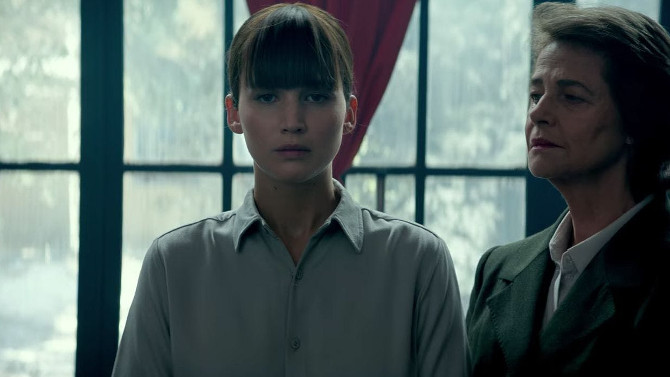
Seeing Red
Red SparrowMarch 4, 2018If it was ever possible for a film to be of the wrong time as well as utterly relevant for its time, Francis Lawrence’s Red Sparrow would be it. Like a hybrid of a 1970's B exploitation pic and Italian giallo thriller (it relishing in its moments of sadism, violence and nudity), at the same moment, it is a worthwhile vehicle for its female lead. Dealing with topics such as rape, revenge, retribution, and politics, its old-school style story-telling (with twenty-first century glossy filter) has likely pushed it to the fringes – with such issues ripping through Hollywood and American politics itself, it may be too close to home for many to enjoy. A motion picture that would have thrived on the drive-in circuit back in the day, it is a twisty (and twisted) Machiavellian tale of spy-craft and game-playing. . . a dog eat dog, cutthroat world. Led by a daring performance from Jennifer Lawrence (reuniting with her Hunger Games director – that is, of films two, three, and four), she plays Dominika Egorova, a prima ballerina in Russia. After a horrible injury, she is left in a precarious position, as she does not have the money to support herself or her sickly mother, Nina (Joely Richardson).
-

Oscar Predictions 2018
February 27, 2018Predicted winners, who should win, and my favourites from this year's Oscars (the 90th Academy Awards). Catch up on all of the buzz before the big event.
-
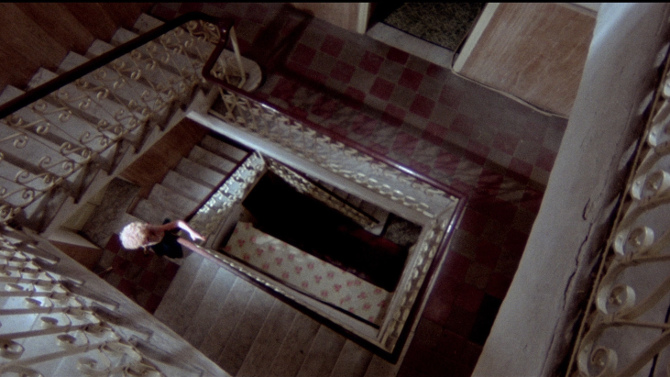
A Case of Corruption – Milano Style
The Suspicious Death of a MinorFebruary 25, 2018Combining two of the most fascinating Italian genres of the 1970s, giallo and poliziotteschi (that is, thriller and crime/action), 1975's The Suspicious Death of a Minor (also known as Too Young to Die) uses more subtle strokes of violence and nudity compared to many other giallo features from the time, instead building suspense and energy by way of highly original set pieces. Directed by Sergio Martino (this is his sixth and final giallo, another example being Your Vice Is a Locked Room and Only I Have the Key), he introduces us to the picturesque yet dangerous world of Milan, circa 1975 – a place where we find a young prostitute named Marisa (Patrizia Castaldi) on the run from an unsettling figure in mirrored glasses. Attempting to meet with undercover detective, Paolo Germi (Claudio Cassinelli – the actor sadly died in a helicopter crash while filming another Martino picture – 1986's Hands of Steel), she is eliminated by the stone cold proficient assassin before being able to pass on any actionable information.
-
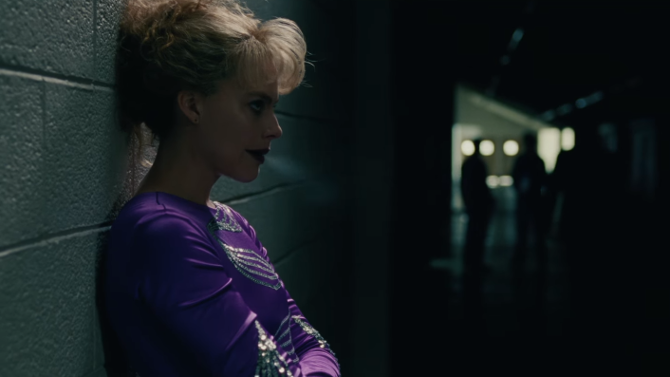
Spinning a Tale
I, TonyaFebruary 23, 2018Like landing a triple axel, figuratively speaking, I, Tonya writer Steven Rogers and director Craig Gillespie (Lars and the Real Girl) conquer the difficult feat of bringing the complicated career of figure skater Tonya Harding to vivid life on the big screen. Relishing in the ‘perception of truth’, Rogers and Gillespie develop a bio-pic mockumentary style approach, each character having their own version of the story. Complex in its narrative direction, multiple persons have their say, sometimes breaking the fourth wall and talking directly to the audience – at one point, Harding (Margot Robbie – Academy Award nominee for Best Lead Actress), gun in hand, makes it quite clear that this portion of the tale never actually happened – a rebuttal to her husband, Jeff Gillooly (Sebastian Stan), and his unflattering perspective.
